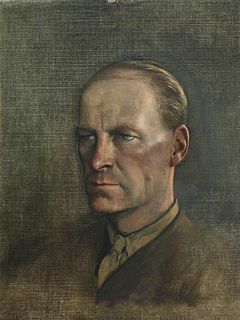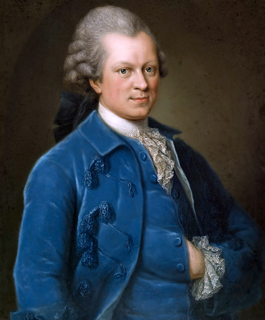A Quote by Christopher Dawson
Faith transcends reason because divine truth is not only higher, but also wider than the human mind, and the rationalist in his haste for premature simplification always tends to shut his eyes to one aspect of the truth and to seek a false harmony of thought by the sacrifice of an essential element of reality.
Related Quotes
Faith in the continuance and enhancement of the intrinsic values--faith in truth, in beauty, in friendship, in love and harmony of life--in short, faith in reason and the worth of spiritual life--such faith is only another name for faith in the persistence of spiritual individuality. For, I repeat, these values are real only as functions of personal experience and deed. To have faith in the permanence of intrinsic values is to assume the enduring reality of selves who know truth, feel beauty, who love and win spiritual harmony.
Belief, as I use the word here, is the insistence that the truth is what one would "lief" or wish it to be. The believer will open his mind to the truth on condition that it fits in with his preconceived ideas and wishes. Faith, on the other hand, is an unreserved opening of the mind to the truth, whatever it may turn out to be. Faith has no preconceptions; it is a plunge into the unknown. Belief clings, but faith lets go.
When a man has offered in sacrifice all that he has for the truth’s sake, not even withholding his life, and believing before God that he has been called to make this sacrifice because he seeks to do his will, he does know, most assuredly, that God does and will accept his sacrifice and offering, and that he has not, nor will not seek his face in vain.
If we simply preach the effects of redemption in the human life instead of the revealed, divine truth regarding Jesus Himself, the result is not new birth in those who listen. The result is {only} a refined religious lifestyle . . . we must make sure that we are living in such harmony with God that as we proclaim His truth He can create in others those things which He alone can do.
It is too often believed that a person in his progress towards perfection passes from error to truth; that when he passes on from one thought to another, he must necessarily reject the first. But no error can lead to truth. The soul passing through its different stages goes from truth to truth, and each stage is true; it goes from lower truth to higher truth.
Truth is always here. That's the only way truth can be. Truth cannot be anywhere else. The only time it can be is here, and the only place it can be is now. But the mind is never here and is never now. Hence, mind and truth never meet. The mind goes on thinking about truth, and the truth goes on waiting to be realized, but the meeting never happens. The meeting is possible only if mind stops functioning, because mind means the past, mind means the future. Mind is never here-now. Whenever you start thinking, you are going astray. If you stop thinking, suddenly you are at home.
The true value of man is not determined by his possession, supposed or real, of Truth, but rather by his sincere exertion to get to the Truth. It is not possession of Truth by which he extends his powers and in which his ever-growing perfectability is to be found. Possession makes one passive, indolent and proud. If God were to hold all Truth concealed in his right hand, and in his left only the steady and diligent drive for Truth, albeit with the proviso that I would always and forever err in the process, and to offer me the choice, I would with all humility take the left hand.
All fanaticism is false, because it is a contradiction of the very nature of God and of Truth. Truth cannot be shut up in a single book, Bible or Veda or Koran, or in a single religion. The Divine Being is eternal and universal and infinite and cannot be the sole property of the Mussulmans or of the Semitic religions only, - those that happened to be in a line from the Bible and to have Jewish or Arabian prophets for their founders.





































